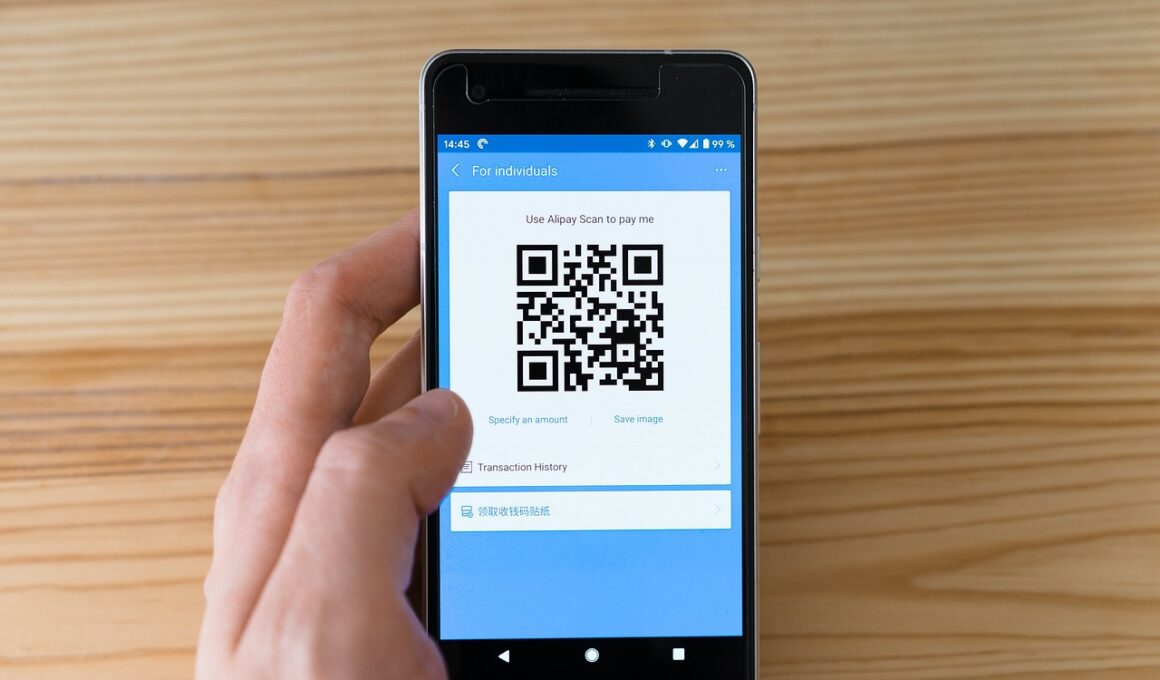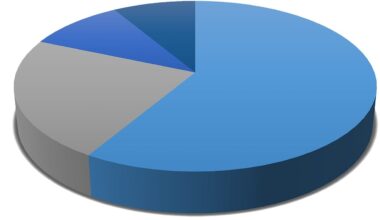The Role of Mobile Apps in Delivering Financial Health Insights
In recent years, the rise of mobile apps has significantly transformed the banking industry, particularly in the realm of providing financial health insights. These applications serve as powerful tools for consumers seeking to manage their finances more effectively. Mobile banking apps offer a range of features, including budget tracking, spending analysis, and personalized financial recommendations. With the integration of advanced technologies such as AI and machine learning, these apps can offer tailored insights based on individual spending habits. Users can receive notifications about their spending patterns, upcoming bills, and savings goals. Furthermore, the ease of access to financial information through mobile devices has empowered consumers to make informed decisions about their finances. Users can easily track their account balances, analyze their transactions, and receive insights into their overall financial health metrics. According to recent studies, financial health apps can improve consumers’ financial literacy and help them achieve better financial stability over time. This is particularly beneficial in today’s fast-paced world, where individuals are constantly navigating complex financial landscapes. As such, mobile banking apps are becoming indispensable tools for financial wellness.
As banking continues to evolve, several key functionalities define the success of mobile apps in promoting financial health. One notable feature is budgeting tools that help users categorize their expenses. Users can set spending limits for various categories and receive alerts when they approach these limits. This proactive approach encourages responsible spending habits. Also, better visual representations, such as graphs and charts, provide users with a snapshot of their financial status at a glance. Alongside budgeting, many apps incorporate savings features, allowing users to create separate savings goals. Users can set aside specific amounts for future investments, vacations, or emergency funds. These functionalities foster a sense of financial agency among users. Additionally, the ability to link multiple accounts enhances the user experience, allowing customers to see a holistic view of their financial situation. Integration with investment accounts is also becoming increasingly common, enabling users to monitor their assets and investments directly through the app. By providing these multifaceted financial health tools, mobile banking apps help consumers navigate their financial landscapes more effectively and successfully manage their financial goals.
Data Security and Privacy in Financial Health Apps
Data security and privacy are paramount concerns in the digital banking landscape. With the personal financial information housed within mobile apps, banks and app developers prioritize robust security measures to protect user data. Most reputable apps employ encryption protocols and multifactor authentication, creating walls against potential cyber threats. Transparency about data collection and usage policies fosters trust with users, reassuring them that their information will not be misused. Moreover, compliance with regulations like the GDPR ensures users’ rights to their data, enhancing their confidence in using these financial health tools. Users must also take steps to safeguard their data, such as using strong passwords and setting app permissions thoughtfully. The importance of regular security updates can not be emphasized enough, as these updates often contain critical fixes to vulnerabilities. As banking apps continue to evolve, ongoing efforts to bolster security and protect user privacy will remain essential. In this way, secure mobile apps can effectively contribute to users’ financial health without compromising their safety and security. Ultimately, a focus on security not only protects user data but also enhances the overall user experience.
Moreover, collaboration between banks and fintech companies is accelerating the development of innovative financial health tools. Many banks are now partnering with fintech firms to combine technological expertise with traditional banking services. This collaboration leads to the creation of apps that can provide advanced analytics for users, enabling deeper insights into their financial behavior. Educating users about financial products through interactive features is an essential aspect of this partnership. Some apps have started to integrate gamification elements that motivate users to achieve financial health goals through engaging activities. For instance, challenges can be introduced that reward users for meeting savings or budget goals, fostering more responsible financial habits. This synergy between traditional banks and agile fintech startups positions financial health tools as not just functional but also enjoyable. As more individuals embrace personal finance apps, the demand for seamless user experiences and engaging features will likely continue to rise. In this context, the future of banking will depend heavily on technological innovations that simplify financial management and provide actionable insights to users, reinforcing the crucial role of mobile apps in enhancing financial literacy.
Impact on Financial Well-Being
The impact of mobile financial health tools on user well-being cannot be understated. Enhanced financial literacy enabled by these apps has the potential to lead to better budgeting, saving, and spending decisions. Users are now equipped with live data enabling them to make conscientious choices that align with their financial objectives. By quantifying spending habits and setting clear savings goals, consumers can track their progress over time, fostering a sense of accomplishment. Additionally, access to real-time financial insights allows users to respond promptly to their financial circumstances. For those facing financial challenges, mobile apps serve as resources for identifying solutions and strategies for improvement. Financial coaching features integrated into some apps can guide users through budgeting techniques and debt management advice, thereby promoting a culture of accountability. Studies show that users of financial health apps report lower levels of stress related to money management, which speaks volumes about the psychological benefits these tools provide. Consequently, mobile apps are not merely transactional tools; they contribute to improving users’ overall financial well-being and mental health.
Furthermore, community support within financial health apps enriches user engagement. Some applications feature forums or social networks where users can share their experiences and strategies for financial success. This aspect of community engagement fosters a space for peer learning and encouragement. By learning from others’ successes and challenges, users are more likely to stay motivated in their financial journeys. Some apps curate financial literacy courses tailored to users’ needs, allowing for continual learning and improvement. The ability to learn and grow together with others creates a sense of belonging, which is essential for consumer satisfaction. User feedback and ratings influence the development of new features, ensuring that the app remains user-centric. Additionally, positive reinforcement mechanisms, such as rewards for reaching savings milestones, enhance user retention and commitment. In such communities, individuals can find support that aligns with their financial aspirations. Thus, building community within financial health apps is essential for leveraging collective engagement toward achieving personal financial goals and improving long-term financial health outcome.
The Future of Mobile Financial Health Apps
As we look ahead, the future of mobile financial health tools seems promising and full of potential. The integration of artificial intelligence and big data can revolutionize the way these tools operate, providing users with unparalleled personalization and insights. Predictive analytics can allow apps to forecast spending trends or suggest optimal savings paths based on individual user data. Additionally, augmented reality features could enhance budgeting experiences by providing immersive ways to visualize spending habits. The expansion of digital currencies and decentralized finance will likely influence the features and functionalities of banking apps in the future. As consumers become increasingly tech-savvy, their expectations for these applications will continue to evolve. The integration of social features and financial education will also play a crucial role in shaping future apps, appealing to millennials and Gen Z who prioritize community learning and awareness. This innovative landscape suggests that mobile banking apps will become not only essential for managing finances but also integral components of personal financial strategy and well-being. As banking technology advances, staying aligned with user needs and preferences will be critical for financial institutions looking to thrive.
In conclusion, mobile apps have emerged as indispensable tools in promoting financial health among consumers. They empower users through budgeting features, personalized insights, and educational resources. The collaboration between traditional banks and fintech companies accelerates the creation of innovative solutions catering to users’ financial needs. Addressing security and privacy concerns is crucial in fostering user trust and maximizing app adoption. Furthermore, the community aspects of financial health apps serve to engage users and motivate them towards achieving their financial goals. With advancements in technology and increasing user demands, the future of mobile financial health tools looks bright and promising. These tools not only facilitate better financial management but also contribute to improving overall financial literacy and well-being. As consumer behaviors and expectations evolve, financial institutions must remain agile, adapting their services to meet the changing landscape of mobile banking. The role of financial health apps will undoubtedly expand, solidifying their importance in helping individuals navigate their finances with confidence and ease. Ultimately, cultivating financial wellness through mobile applications provides significant benefits for users and the broader financial ecosystem.


